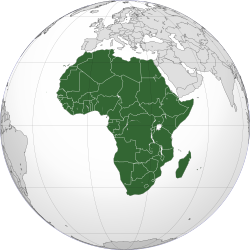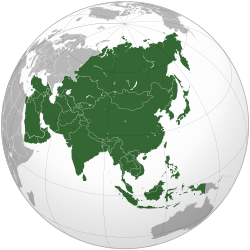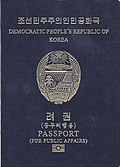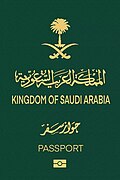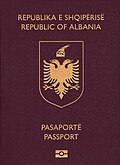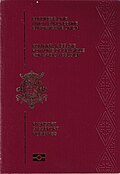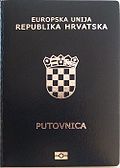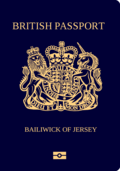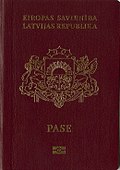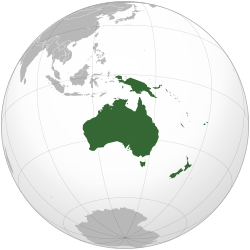A passport is a booklet issued by countries to their citizens, permitting the person to travel to other countries. In some cases countries issue travel documents similar to passports to their residents. International organizations also issue travel documents, usually called laissez-passer, to their staff. This article shows images of the various passports currently issued.
Contents
- Contemporary ordinary passports
- Special cases
- Africa
- North and Central America
- South America
- Asia
- Europe
- Oceania
- International organizations and sovereign subjects of international law
- Contemporary diplomatic passports
- Types
- Special passports
- Travel documents issued to non-nationals
- Common design passport groups
- See also
- References
- External links


